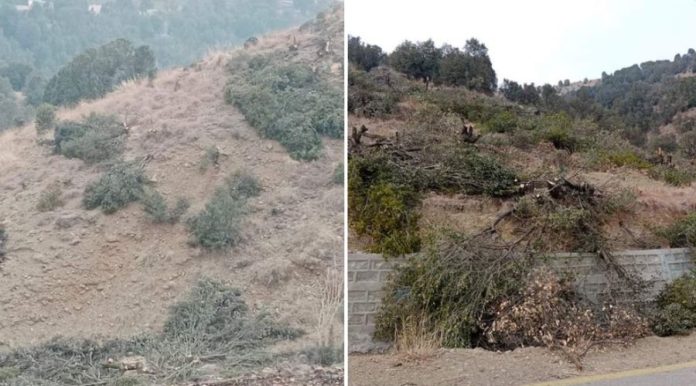The historical oak trees in Upper Waziristan are being indiscriminately cut, even up to 200 meters away from roads by the military in the name of security. The actions are drawing criticism, as Pakistan Army has, at first, depopulated the region and is now contributing to environmental degradation.
While countries around the world focus on preserving their natural and scenic wealth, concerns are rising over the deforestation activities in Upper Waziristan. Apparently, under the guise of security, the Pakistan Army is not only jeopardizing the region’s ecological balance but also impacting the livelihoods and well-being of the local population.
The Pakistani establishment has defended cutting oak trees, citing security concerns as the primary motivation. However, security pretext has been a familiar modus operandi employed by the authorities. The irony is underscored by the fact that, despite claims of enhancing security, the native population of the region remains insecure, echoing earlier instances in Pakistan-occupied Balochistan, Pakistan-occupied Jammu and Kashmir (POJK), and Pakistan-occupied Gilgit Baltistan (POGB).
Evidently, deforestation is less about security and more about resource exploitation, further filling the establishment’s coffers. The situation is drawing parallels to previous acts in other disputed regions.
Notably, there has been a lack of vocal opposition from environmental protection NGOs or climate activists or may be authoritarian nature of the Pakistani establishment may be discouraging individuals and organizations from challenging these actions. The silence has led to growing concerns about the audacity and ability of environmental advocates to confront such environmentally damaging practices.
Nevertheless, the current deforestation order by the establishment is going to pose a significant dent on the ecological balance of the region, consequence of which, unfortunately, will be heard only by the people of the region and not the authorities.

